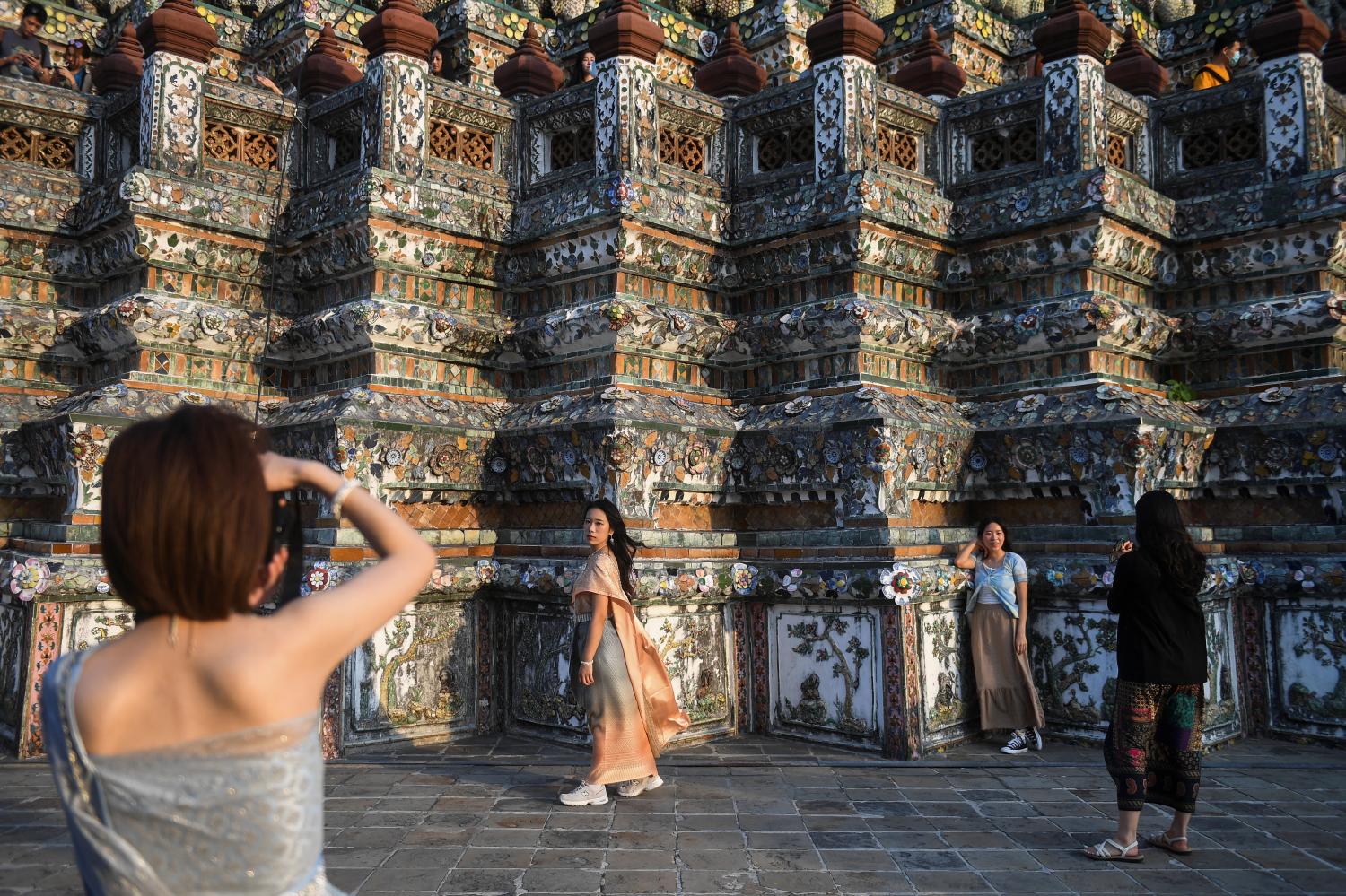
There are positive signs for the tourism sector as Prime Minister Prayut Chan-o-cha suggested China will soon allow tour groups to visit Thailand, which could lead to more hotels reopening and higher demand for bus tours.
Gen Prayut said Thursday at a Chinese New Year event in Ratchaburi that Beijing indicated Thailand will be among the first destinations approved for outbound tour groups, while the Tourism Authority of Thailand (TAT) confirmed on Friday that Chinese groups are allowed to visit Thailand and 19 other nations from Feb 6.
Sisdivachr Cheewarattanaporn, president of the Association of Thai Travel Agents, said travel agents in Thailand and China are prepared to start group sales while waiting for an official announcement from Beijing.
However, he said it would take time for airlines to increase flights between Thailand and large cities in China to allow a large number of Chinese tour groups, likely in the second quarter.
Tourism operators have to urgently hire more staff, especially Chinese speakers to accommodate not only Chinese tourists, but also those from Singapore, Malaysia, Hong Kong and Taiwan, he said.
Wasuchet Sophonsathien, president of the Thai Transportation Operators Association, said there are 10,000-15,000 buses for tour groups, but with Chinese groups expected to return, demand is expected to increase to 40,000, a similar level as in 2019.
He said bus operators still have insufficient budget for maintenance and face a shortage of drivers.
The association earlier proposed to the Finance Ministry a subsidy scheme to help partly absorb the 500,000 baht in maintenance costs per bus. It also asked the Labour Ministry for a scheme to help hire at least 3,000 drivers for six months.
Bhummikitti Ruktaengam, advisory chairman of the Phuket Tourist Association, said the private sector should be able to adjust workflow to accommodate a new wave of Chinese tour groups.
However, he urged the government to immediately solve "bottleneck issues" such as the slow approval of flight slots and the shortfall of ground handling services, which caused delays at the airport.
Mr Bhummikitti said as Chinese tourists will also come via the China-Laos railway in the near future, border immigration offices must be ready in terms of staff and counters, as well as digitising TM6 immigration cards to save time at entry points.
As airfares remain expensive, most independent Chinese tourists this year will be those with high purchasing power, he said.
When tour groups are allowed to venture out, increasing flights will lead to more affordable prices, which could match tour demand, said Mr Bhummikitti.
"Some 20% of hotels in Phuket that were closed because of the lack of Chinese tour groups will eventually reopen," said Suksit Suvunditkul, president of the southern chapter of the Thai Hotels Association (THA).
The TAT estimated 5 million Chinese visitors this year, and Mr Suksit predicts 1.5 million will visit Phuket.
Marisa Sukosol Nunbhakdi, THA president, urged the government to regulate accommodations without hotel licences, as well as work to prevent unfavourable impacts from mass tourism, such as limiting the carrying capacity at tourist attractions.
In the long term, the country should focus on high-spending travellers by promoting medical and wellness tourism as well as the Mice (meetings, incentives, conventions and exhibitions) segment, said Mrs Marisa.
The site Trip.com reported searches from China for tour packages during the Lunar New Year surged six-fold, with Thailand one of the most-searched destinations, said Boon Sian Chai, managing director and vice-president, international markets at Trip.com Group.
Accommodation and attractions bookings by Chinese tourists also soared by 447% and 10 times year-on-year.







